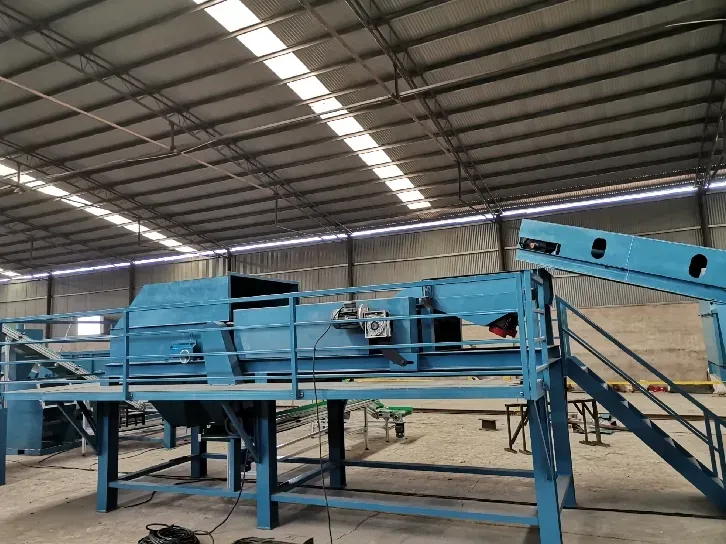

نوامبر . 05, 2024 08:58 Back to list
Aluminum Can Recycling Plant A Sustainable Solution for Tomorrow
With the increasing global concern for environmental sustainability, aluminum can recycling has emerged as a pivotal aspect of waste management strategies. Aluminum cans, ubiquitous in the beverage industry, present a significant opportunity for recycling, which not only conserves natural resources but also reduces energy consumption and greenhouse gas emissions. An aluminum can recycling plant plays a critical role in harnessing this potential, transforming discarded cans into valuable raw materials for new products.
The recycling process begins with the collection of used aluminum cans from various sources, including households, businesses, and communal recycling centers. Once collected, the cans are transported to the recycling plant, where they undergo rigorous cleaning and sorting procedures. Contaminants such as labels, plastic components, and residual liquids are meticulously removed, ensuring that the aluminum is of the highest quality for reuse.
One of the notable advantages of recycling aluminum is the remarkable reduction in energy usage compared to producing new aluminum from bauxite ore. The recycling process requires only about 5% of the energy needed for primary aluminum production. This energy efficiency is especially crucial in the context of rising energy costs and climate change. By converting scrap aluminum back into usable metal, recycling plants contribute significantly to energy conservation and reduce reliance on fossil fuels.

After cleaning and sorting, the aluminum is compacted into bales and sent to smelting furnaces. Here, the aluminum is melted down at high temperatures and then cast into new aluminum ingots. These ingots can be used to manufacture a variety of products, including new cans, automotive parts, and building materials. The closed-loop nature of aluminum recycling means that a can recycled today can become a new can within a matter of months, demonstrating the efficiency and sustainability of the process.
Moreover, aluminum can recycling plays a vital role in reducing landfill waste. According to statistics, recycled aluminum saves 95% of the energy required to create new aluminum, and it diverts millions of tons of waste from landfills each year. This not only helps in mitigating the pressing issue of waste disposal but also promotes a circular economy where products are reused and repurposed rather than discarded.
In conclusion, aluminum can recycling plants are essential facilities that help facilitate a sustainable future. By transforming waste into a valuable resource, these plants contribute significantly to energy savings, waste reduction, and environmental protection. As consumers become increasingly aware of their environmental footprints, the importance of effective recycling programs cannot be overstated. Investing in aluminum can recycling not only supports ecological integrity but also fosters economic stability by creating jobs and supporting local economies. As we look towards a greener future, optimizing aluminum recycling processes will undoubtedly pave the way for a more sustainable world.
Latest news
Troubleshooting Common Eddy Separator Problems
NewsJul.04,2025
The Role of Metal Recycling Plants in Circular Economy
NewsJul.04,2025
The Impact of Recycling Line Pickers on Waste Management Costs
NewsJul.04,2025
Safety Features Every Metal Shredder Should Have
NewsJul.04,2025
How Industrial Shredders Improve Waste Management Systems
NewsJul.04,2025
How Cable Granulators Contribute to Sustainable Recycling
NewsJul.04,2025